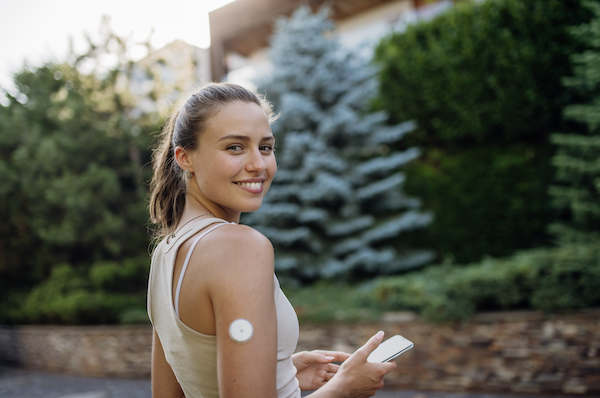 For anyone who is following their blood sugar readings, doing a continuous glucose monitor can be overwhelming. What is normal? Is this bad? What should I be looking for? There is such a thing as data overload and not every number is important or needs to be treated. You have to look at the overall picture.
For anyone who is following their blood sugar readings, doing a continuous glucose monitor can be overwhelming. What is normal? Is this bad? What should I be looking for? There is such a thing as data overload and not every number is important or needs to be treated. You have to look at the overall picture.
First, we at Biohackr Health recommend you do our insulin panel. In this, we find out basic labs regarding your blood sugar. One of the important ones we look at is HbA1c. This looks at your average blood sugar over the past 3 months.
We do think knowing your blood sugar pattern though is important. There is consensus that glucose spikes are not great. Glucose spikes are associated with greater hunger, poorer mental health, poorer sleep, and increased mortality risk from cardiovascular disease.
There are simple things you can do to help your blood sugar not spike as high, from eating differently (adding protein or fats, eating smaller portions), walking after meals (see our blog), NAD+ (see our nutraceutical), to taking probiotics which use your microbiome to help glucose control (see our probiotic, made with bacterial strains known to help).
We carry CGMs. (continuous glucose monitors). If you have any history of diabetes, heart disease, or elevated HbA1c (anything above 5.0), we think this is a useful tool to evaluate how your body reacts to food and exercise. It is incredible how variable it is between people, and what may seem equivalent to you (this cereal vs. that cereal) may have widely different reactions by your body.
This was a review in Metabolism, September 2023, to address glucose monitoring in people WITHOUT diabetes. “Continuous glucose monitoring in a healthy population: Understanding the Post Prandial Glycemic Response in Individuals without Diabetes Mellitus.”
What studies show:
- 153 patients, Shah study 2019. Found mean average of glucose was 98-99 for all age groups except those older than 60. Those over 60 mean sugar was 104. Median time spent between 70-140 was 96%. Time spent above 140 was 2% = 30 minutes a day.
- 21 patients, Frechmann study 2007. Glucose after breakfast was 132, peak after lunch 118, and dinner 123.
- 1002 patients, Berry study 2021. Larger individual variability in the response of glucose, triglycerides and insulin after standardized meals. They think each person has different factors like genetics and microbiome which affect glucose spike.
- 57 patients, Hall study 2018. These were patients without a diagnosis of DM. They identified three types of responses to the same challenge. Low variability, moderate, and severe. They think that finding people’s “glycemic profile” will be helpful to identify those at risk for metabolic dysfunction
- 448 patients vs 192 with diabetes, Zahedani study 2021. CGM data and heart rate. Used a smartphone based app. Looked at food intake- macronutrient, glycemic load, and glycemic index. 15% of those who were “healthy” had glucose levels that went into the diabetes range, 36% of those with prediabetes did. They found that 50% of the participants were able to improve their time in range (54-140 for healthy, 54-180 for prediabetics) when CGMs were used.
The authors conclude that high glucose levels lead to insulin resistance –> changes in glucose and lipid metabolism –> inflammatory reactions, oxidative stress, development of atherosclerosis and heart disease.
Those who did continuous glucose monitors IMPROVED THEIR NUMBERS. This is an area where knowledge can truly help.
How can Biohackr Health help?
So come in and find out your HbA1c. Try our probiotic to improve your microbiome. Do a CGM to chart YOUR body’s response to food and figure out ways to improve it. This is great to do at any age. If you learn your pattern and eat better, it is going to improve every body system going forward. As we have blogged about before, blood sugar is not just diabetes- it is likely a root cause of inflammation, heart disease, dementia, and cancer.